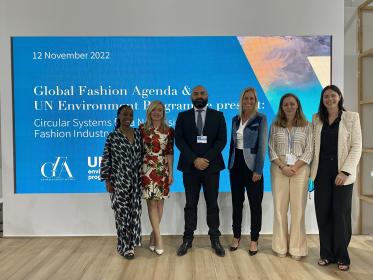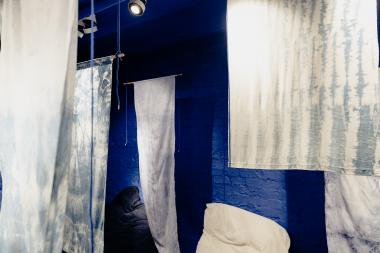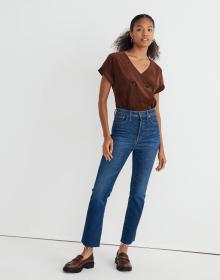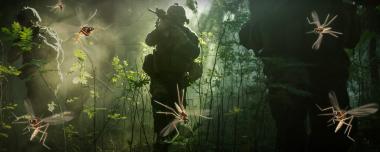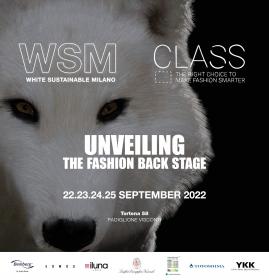ISKO at Climate Change Conference (COP 27)
Confirming its commitment as a global sustainability player.
The Sharm el-Sheikh Climate Change Conference (COP 27) has turned out to be one of the most closely watched events in recent years, an opportunity to bring together leaders from around the world in the face of a pressing and undeniable need
ISKO had the honor to be the only manufacturer representative of the fashion industry at the United Nations event by taking part on 12 November at the focus talk “Circular Systems for a Net Positive Fashion Industry” organized by the Global Fashion Agenda (GFA) and the UNEP (United Nations Environment Programme).
Elena Faleschini, Senior Manager Brand Partnerships ISKO, and the other speakers (Federica Marchionni, Lily Cole, Miranda Schnitger, Samata Pattinson, Holly Syrett and Tarek Alkhoury) have agreed that:
- Harmonization and transparency in goals are critical.
- Vertical and horizontal partnerships are key.
- Investment in innovation is vital to a circular business model in fashion.
- Fashion must be part of the discussions around climate change and net positive.


